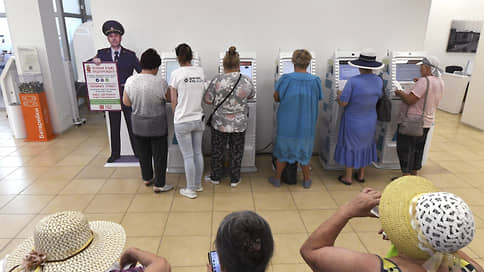The amount of theft through banks decreased by a quarter compared to the end of 2024

According to the results of the first quarter, the amount of theft through banks decreased by a quarter compared to the end of last year, but the return of the stolen funds is almost half. Experts believe that the flow of transfers for two days helped to limit the flow of thefts, the right to which banks received by law, and the volume of funds returned to citizens could fall, in particular, due to the policy of banks when qualifying operations committed without the consent of customers.
In the first quarter of 2025, fraudsters stole 6.7 billion rubles from citizens using bank transfer, which is a quarter less than in the fourth quarter of last year. Such data are contained in the “Reporting reviews on information security incidents when transferring funds”, published by the Bank of Russia May 16.
- At the same time, the amount of compensation has almost doubled – from 0.9 billion rubles. up to 0.5 billion rubles.
- As a result, the share of this indicator decreased to 7.8%, although in the third quarter of last year it was 11.9%, and in the fourth – 10.7%.
In annual terms, the volume of stolen funds in the first quarter of 2025 exceeds not only the values of the year ago (by 60%), but also the indicators of any quarter of the last three years (with the exception of the third and fourth in 2024). The MVA-Professor of the Digital Finance of the Presidential Academy of the Russian Academy of Sciences Aleksey Voilukov notes on this subject: “It should be borne in mind that in the third and fourth quarter of 2024 there was an abnormal growth of theft, so that the number of fraud is returning to the natural growth rate of growth.”
At the same time, participants in the information security market note that the introduced regulation and implemented technologies allow you to restrain this process.
The head of the security group of banking systems Positive Technologies, Sergei Belov, indicates that legislative amendments gave banks the right to detain suspicious transfers for up to two days and obliged them to check operations on the actualized data database of attackers. “This made it possible to block a large number of fraudulent transactions even at the authorization stage,” he says.
According to the head of the IB-Government « Telecom Exchange » Alexander Blezvekov, large banks use complex automated systems, AI, large data analysts, and also have large financial monitoring commands that operate 24/7. However, such tools for monitoring and identification are expensive, “in addition, they still need to be configured and supported, and many small banks do not have the opportunity to purchase such products, and attackers use this,” the expert notes.
In addition, according to Director of the Center for Anti -Forming Fraud, Pavel Kovalenko, many large banks began to use more aggressive behavioral scenarios and improved the system for evaluating operations – especially when translated from new devices, change location, as well as with atypical activity (atypical activity (atypical activitySee “Kommersant” from April 21).
As for a decrease in the volume of returned funds, experts call a number of factors that have influenced statistics. Sergei Belov notes that in 2024 a surge of compensation was recorded, including under pressure from public opinion. “But after this, the practices were adjusted: banks began to qualify more often as“ committed by the client voluntarily, but under deception, ”and not as the operation“ without consent, ”he says. According to him, this subtle legal line allows banks in such cases not to compensate for the damage.
Fedor Muzalevsky, director of the RTM Group Technical Department, notes that the fraudulent operations on which the funds returned had signs of bank mistakes.
“These operations have now learned to prevent, and the number of such errors has decreased, that is, the Central Bank brought banks to the level when it is easier to prevent than to violate the requirements,” he says. An artificial increase in the return of stolen means, for example, for emotional and social motives, “will lead to the emergence of“ consumer terrorism ”among bank customers, and will also relax users so much that the growth of theft will increase sharply,” Fedor Muzalevsky said.







